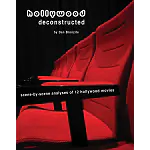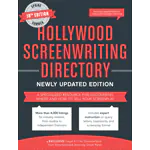Whether it’s a daily routine of meals, a weekly routine of phone calls, or going to your typical vacation destination, we are all creatures of habit, some more than others. We create comfort zones in our everyday lives, sometimes for fear of change and other times simply because we no what we like and we want an easy life.
This is also true for screenwriting. We may start out not knowing what kind of writers we are and what stories we want to tell and then discover our own voice, style and preferences along the way. Or we may know right from the get-go that we love thrillers and only want to right for this genre. Whichever camp you fall into habit can prove to be a good thing and a bad thing. Just because you like one kind of genre, doesn’t mean you won’t be good at writing another. Similarly, just because you THINK you’re good at writing one type of story, doesn’t mean you won’t be better at writing a different kind.
Script writing should be viewed as another form of exercise – so long as we overlook the fact that we’re normally slouched in a chair in front of the computer during most of the process. Sometimes it’s good to stretch your creative muscles, try new things and experiment. But stay off the drugs! Seriously though, writers become lazy, writing what they know and not pushing themselves to be innovative except within the constraints of their chosen genre. Instead, you should constantly challenge yourself and throw yourself in at the deep end once in a while.
If you enjoy writing horrors, why not have a stab (pardon the pun) at writing a comedy? Who knows, it may produce a great script. Or, you may find out that you do have a good sensibility for humorous scenes but not enough for creating a full script in the genre. If that is the case, at least you know your boundaries and you may even be able to apply some of the lessons learned to your regular script and write a comedy horror.
Try to imagine your story as a visual landscape and keep it interesting. If you’re always writing similar stories and characters, expand your palette. Add more color. Mix up your ingredients and make full use of your cinematic canvas. The process will at the very least teach you things about your approach to screenwriting and the experience will always help you no matter what kind of story you tell. Sometimes the lessons we learn through life are never immediately apparent but ultimately influence us in one way or another – screenwriting is no different.




